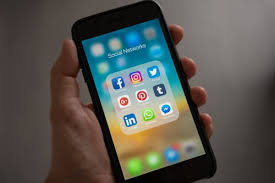
Do you ever sit in a room minding your own business, and suddenly you feel or hear your smartphone vibrating, only to look at your phone and see nothing appear on your screen?
Thomas Kersting describes this in his book Disconnected, as the phantom vibration syndrome where smartphones are making us hallucinate where we feel or hear a buzzing sensation when there isn’t one. The smartphone has become a part of us.
According to research, 80% of the world population use mobile devices. In the U.S. at least three out of four people own a smartphone, where Americans touch their phone about 2,600 times a day. Up to 65% of people are using their smartphones to read the news, post statuses, read and reply to messages, and to post pictures.
The world of the smartphone has changed our lives. Smartphones are popular for the applications they offer. People have found it easier to communicate with others, they are able to stay on track with their daily schedule, accomplish daily tasks, and have access to different features that smartphones support.
Despite the benefits a smartphone can offer, it is also the main form of entertainment for us to get connected to others through the world of social media. This especially holds true for our adolescents and young adults.
The existence through social media has caused teens and young adults to question their own lives. With the easy access to social media on their smartphones, they believe that feeling good about themselves has something to do with how others see them. Instead of taking the time to understand their “true” self, they believe the number of “likes” through social media apps is a reflection of their self-worth.
The good news is that parents can help teens by limiting the time they spend on a device by helping them develop life skills, increasing in-person social interactions with friends and family, and going the extra mile to draw them into your family.
Although the smartphone has become a part of our lives, it does not control us. Don’t lose sight of who you are. Remember that you can still get the benefits that an electronic device offers but that it is important to find the right balance between personal time and screen time. By becoming self-aware of our own use of digital communications, we set an example to be role models for our younger generation.
Written by: Minh Bui
